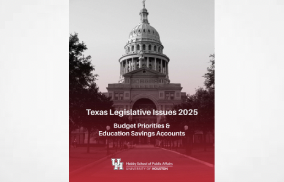Cannabis partners Eric Berlin, Joanne Caceres, Kelly Fair and Amy Rubenstein talk about market trends and regulatory shifts in the industry as we head into 2024.
1. What do you anticipate being the most significant market trends in 2024, and how will these trends impact the overall landscape of the cannabis industry?
In 2024, we anticipate three significant market trends: (i) additional states legalizing cannabis and implementing legalization; (ii) increased profitability and capital funding if cannabis is rescheduled from schedule I to schedule III (more on this below); and (iii) intoxicating “hemp-derived” products’ market expansion and states seeking to regulate those products/markets.
2. What are the specific challenges or opportunities that might arise with potential changes in the scheduling of cannabis?
The FDA (in Health and Human Services) has recommended to the DEA (in the Department of Justice) that the United States reschedule “marihuana” (cannabis except “hemp”) to schedule III under the Controlled Substances Act (CSA). Although the DEA makes the final decision, it is bound by the FDA’s medical and scientific judgments. Moving cannabis to Schedule III would free state-legal operators from IRS Code section 280E, which disallows those operators “trafficking” a Schedule I substance from taking ordinary business tax deductions apart from the costs of goods sold. It would not, however, make those businesses federally legal.
3. How do you see technology and innovation influencing the cannabis sector in 2024?
Technology and innovation will continue to influence every aspect of the cannabis sector from seed genetics and tissue culture through product development, marketing and retail sales. Despite the comprehensive tracking requirements of state-legal cannabis, the industry is still plagued by “bad data” or unusable data. AI and other technology plays will continue to seek to solve for this issue to improve all of these areas. Significant time will be spent on strategies to protect intellectual property.
4. What trends are you observing in the hemp industry, and how do you foresee this industry evolving?
The 2018 Farm Bill changed the CSA’s definition of Schedule I “marihuana” to exclude hemp, defined as cannabis containing no more than 0.3% delta-9 THC (including pre-harvest calculation to account for decarboxylation of THCA). An oversupply of hemp extract, including cannabidiol (CBD) oil, arose due to FDA inaction in finding a fully legal pathway for CBD products. That led enterprising chemists to convert CBD to delta-8 THC and other intoxicating isomers, creating a new category of hemp-derived products. Many view even those intoxicating substances and related products as legal hemp under federal law. Now, intoxicating hemp isomers are sold in different forms (beverages, edibles, vapes, and dry flower) outside the state-regulated cannabis markets including at various standard retail locations and direct to consumers through e-commerce. At least one market survey found that sales of intoxicating hemp products now nearly equal the sales of state-legal cannabis. There may be some federal reform in the 2024 Farm Bill or independent DEA action this year, and state laws will continue to evolve around this dynamic area.
About Dentons
Across over 80 countries, Dentons helps you grow, protect, operate and finance your organization by providing uniquely global and deeply local legal solutions. Polycentric, purpose-driven and committed to inclusion, diversity, equity and sustainability, we focus on what matters most to you. www.dentons.com


















